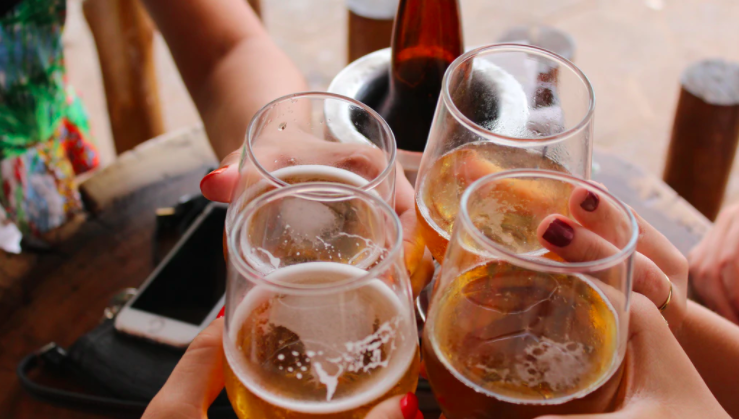The debate around alcohol sales during the COVID-19 pandemic has been a major point of contention. On the one hand, our country’s GDP depends on the economic inflows derived from the purchase and sale of alcohol.
On the other, there is the human element and the risks associated with irresponsible alcohol consumption. These include an influx of alcohol-related incidents such as drunk-driving, increased domestic violence and crime.
Minister of police Bheki Cele and Professor Salim Abdool Karim, Chairperson of the Ministerial Advisory Committee on COVID-19, have both argued that restrictions may be needed again because of its serious impact on hospitals.
Hospitals around the Cape have experienced a substantial increase in alcohol-related injuries and traumas since the alcohol ban was lifted in June 1. While these cases were nothing out of the ordinary prior to the pandemic, COVID-19 brings in a plethora of new complications.
Hospital space and resources have been divided. Specials wards, units and task teams have been created to specifically deal with coronavirus. Doctors, nurses and medical staff have been carefully provisioned to work in these units as well.
Since the ban was lifted, alcohol-related injuries have increased two-fold. Head of Communications for the provincial Health Department, Mark van der Heever, said on average, Groote Schuur Hospital saw eight patients a day during the lockdown.
This number increased to 20 a day in the first week that the ban was lifted. The Helderberg Hospital has also reported a 100% increase in trauma cases. This increase comes at a time where gang-related violence on the Cape Flats has also increased dramatically.
A petition to have the ban reinstated in order to ease the strain on trauma units has garnered 11,852 signatures.
A medical officer from a public hospital in the Western Cape, who declined to be named, spoke to Cape Town Etc about the increase in incidents. The medical officer said logically it would make sense to reinstate the ban.
“Since the alcohol ban was lifted, I can confirm that there are many more cases than before. The trauma numbers in our unit were at least double what they were during lockdown,” explained the medical officer.
Trauma units and emergency centres have been divided to deal with positive and negative COVID-19 patients. When patients arrive drunk or unconscious, they cannot be screened for the virus as their altered level of consciousness inhibits them from providing a medical history to their doctor. They are unable to answer screening questions pertaining to their health, such as if they have experienced any symptoms of the virus or not.
Compos mentis (sound of mind) patients are screened with a set of questions when they arrive at a hospital. They are then divided based on their screening symptoms. When a patient is non compos mentis, the crucial screening process is prevented.
“Alcohol-related trauma patients aren’t coming to the hospital because they’re coughing or have a sore throat, they’re coming because they’ve been stabbed,” said the source.
Precautionary measures are then taken to treat the patient as if he or she is positive, while waiting for clarification from the test results.
If a patient’s status is unknown and they are treated in the non-covid section of the ward, the risk of exposing doctors, nurses and other patients to the virus unknowingly adds additional stress to an already intense environment.
Professor Salim Abdool Karim, Chairperson of the Ministerial Advisory Committee on COVID-19 has noted that the unnecessary trauma caused by alcohol-related incidents is placing serious strain on hospitals across the country.
Speaking to ENCA, Karim said: “The problems of alcohol consumption is that you begin to utilise keys services that are reacquired by COVID-19 patients. As soon as you start getting large numbers of COVID-19 patients coming into the emergency room, every patient coming in for non-COVID-19 conditions such as motor vehicle accidents that are alcohol-related, that person is now at risk of acquiring COVID-19. All in all, it poses a problem.”
Minister of police Bheki Cele has made his opinion on the matter widely known. He said that crime has increased drastically since the ban has been lifted too.
In an interview with ENCA he said: “I have said it all the time that if I were given the opportunity to run and decide alone on this matter, then my first prize would be to ban the alcohol because I believe there is a lot of evidence that it is not doing good.”
Picture: Unsplash

